CAM-Scale Up: Collaborate with us
Each year Zenzic offer funding to SME’s to accelerate their products and services; this funding is called CAM Scale Up. The funding must be used to partner with an organisation within CAM Testbed UK.
Midlands Future Mobility have successfully supported CAM Scale up projects year after year to help SME’s accelerate their pace to market. Previous activities have included validating and optimising transmitter and receiver placement in our drive-in faraday cage, integrating novel sensors to our on-road development vehicle, and the application of novel systems safety methodologies (i.e. STPA).
Below you will find details on our range of expertise and capabilities. Please be in touch at mfm@warwick.ac.uk to explore how your product or service could benefit from these resources through the CAM Scale Up programme.
MFM is made up of partners with wide reaching expertise and capability, all of which you have the potential to reach through the Cam Scale Up funding.
Communications
Communications innovations developed for the CAM industry will revolutionise mobility by increasing location accuracy, delivering real-time data to users, taking processes off-board and improving coordination between vehicles and infrastructure. But as an SME how can you collect edge case performance data? How can you compare a variety of communication protocols? How can you understand integration requirements for the wider system? And more.
Drive in Faraday Cage
MFM’s drive in faraday cage enables us to work with you on 5G data collection, including resilience tests against core functions failure (SMF/AMF/UPF), end-to-end latency evaluation, evaluation of custom SIM card authentication, data governance compliance, network traffic load dependent performance test, 4G/5G/IEEE 802.3 Interoperability Testing.

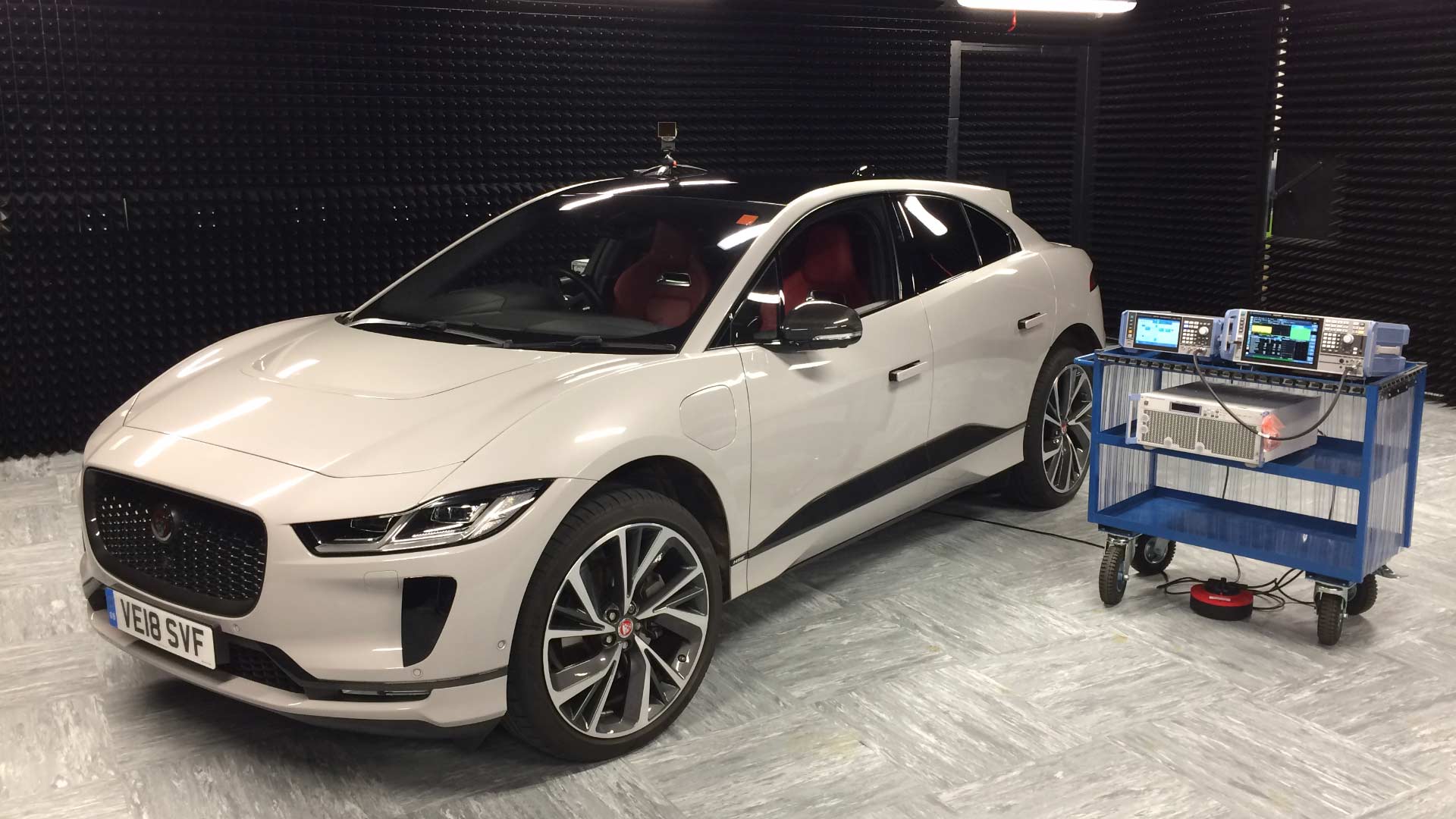
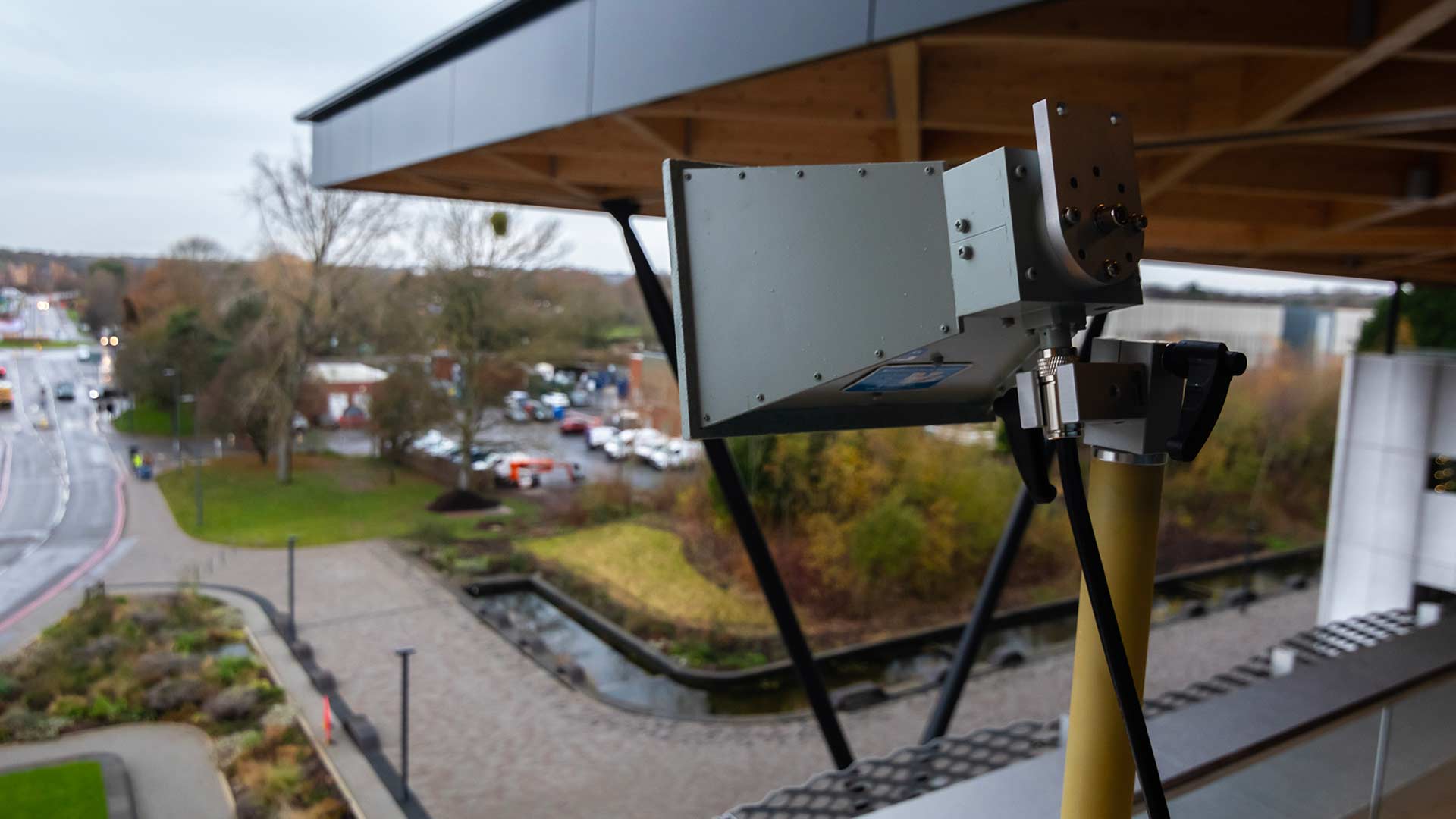
Configurable Core
Configurable 5G Core, including data governance compliance, network traffic load dependent performance test. 5G Network Slicing evaluation, which includes Quality of Service (QoS) against Service Level Agreement (SLA). Complete 5G End-to-End evaluation (User to Core to Cloud/MEC) in controlled and real-world contexts

5G Small Cells
Wireless Infrastructure Group has deployed 36 neutral host small cell nodes to support all wireless operators in a dense urban route along the A45 from the airport into the city centre. The small cell nodes comprise multi-operator shared antennas with cabinets and power to host remote operator radios, linked back to a central data centre near the airport by dedicated dark fibre.
The small cells already enable contiguous high speed 5G connectivity at gigabit speeds from the mobile operator Three, accessible to all SMEs and the general public with a standard 5G SIM card. The infrastructure is also available to support other wireless operators wishing to deploy or test mobile services.


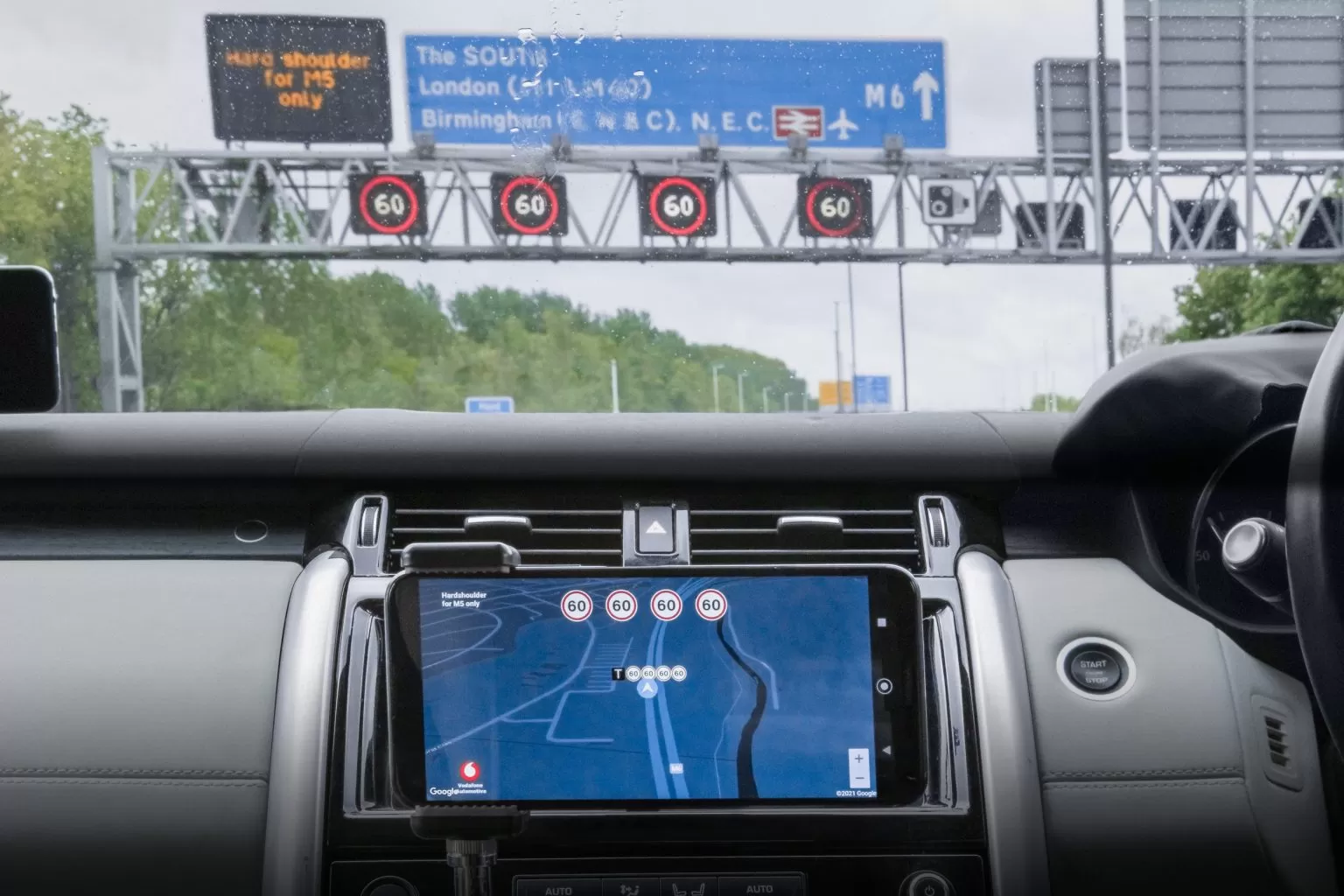
Safer Transport for Europe Platform (STEP)
Vodafone’s Safer Transport for Europe Platform (STEP) is a cooperative mobility solution aimed at improving road safety, security, and accessibility. Built on a modular framework, STEP invites contributions from various stakeholders interested in enhancing mobility.
The platform has been guided by industry standards from ETSI and 5GAA, STEP facilitates the seamless delivery of Intelligent Transport System (ITS) messaging using MQTT and Mobile Edge Compute nodes. Its operational presence in Germany, Spain, and the UK offers opportunities for demonstrations and testing.
Vodafone works alongside other vendors to integrate their components into STEP, ensuring comprehensive support for testing Connected and Autonomous Vehicle (CAV) use cases, thus driving advancements in intelligent mobility solutions through V2X cellular applications.

Green Light Optimised Speed Advisory (GLOSA)
This technology empowers drivers and vehicles to adjust their speed based on real-time signal change predictions, enabling them to approach traffic lights without stopping. By coordinating traffic in this way, GLOSA offers broad benefits for various modes of transport, including bicycles, cars, buses, and HGVs. These benefits range from reduced emissions and enhanced fuel efficiency to improved driver behaviour and smoother traffic flows. At MFM (Amey), we are committed to helping you integrate GLOSA into your projects. Our expertise is grounded in a deep understanding of this connected vehicle technology’s potential and limitations. Notable projects include the nationally recognised ‘Off-Slip GLOSA’ initiative for National Highways, which has gained support from various independent partners.



Virtual Variable Message Signs (VVMS)
Our team at MFM (Amey) possesses extensive experience in developing VVMS solutions that facilitate the transmission of timely and adaptable information directly to vehicles, eliminating the need for costly roadside infrastructure. Our collaborations with councils and involvement in Department for Transport (DfT) funded projects have led to the creation of a whitepaper outlining VVMS’s utility within the UK context. We have also pioneered integrations with popular platforms like Apple CarPlay and Google Maps, enhancing the delivery of information through vehicle head units.

Data Integration, Collation, and Analysis
The expertise of the MFM team integrating a vast array of data from connected vehicle technologies and smart infrastructure, has enabled us to generate precise, intelligent insights. This data supports our clients in auditing their operations, understanding real-world implications, and building a solid foundation in Connected and Autonomous Vehicles (CAV) and Vehicle-to-Infrastructure (V2I) communications. Our commitment to the BSI PAS:1883 standard is evident in our meticulous approach to data organisation. By segmenting the MFM testbed route into over 800 distinct sections and by structuring and interpreting according to the PAS1883 taxonomy, the future utility and accessibility of our data hub is ensured.

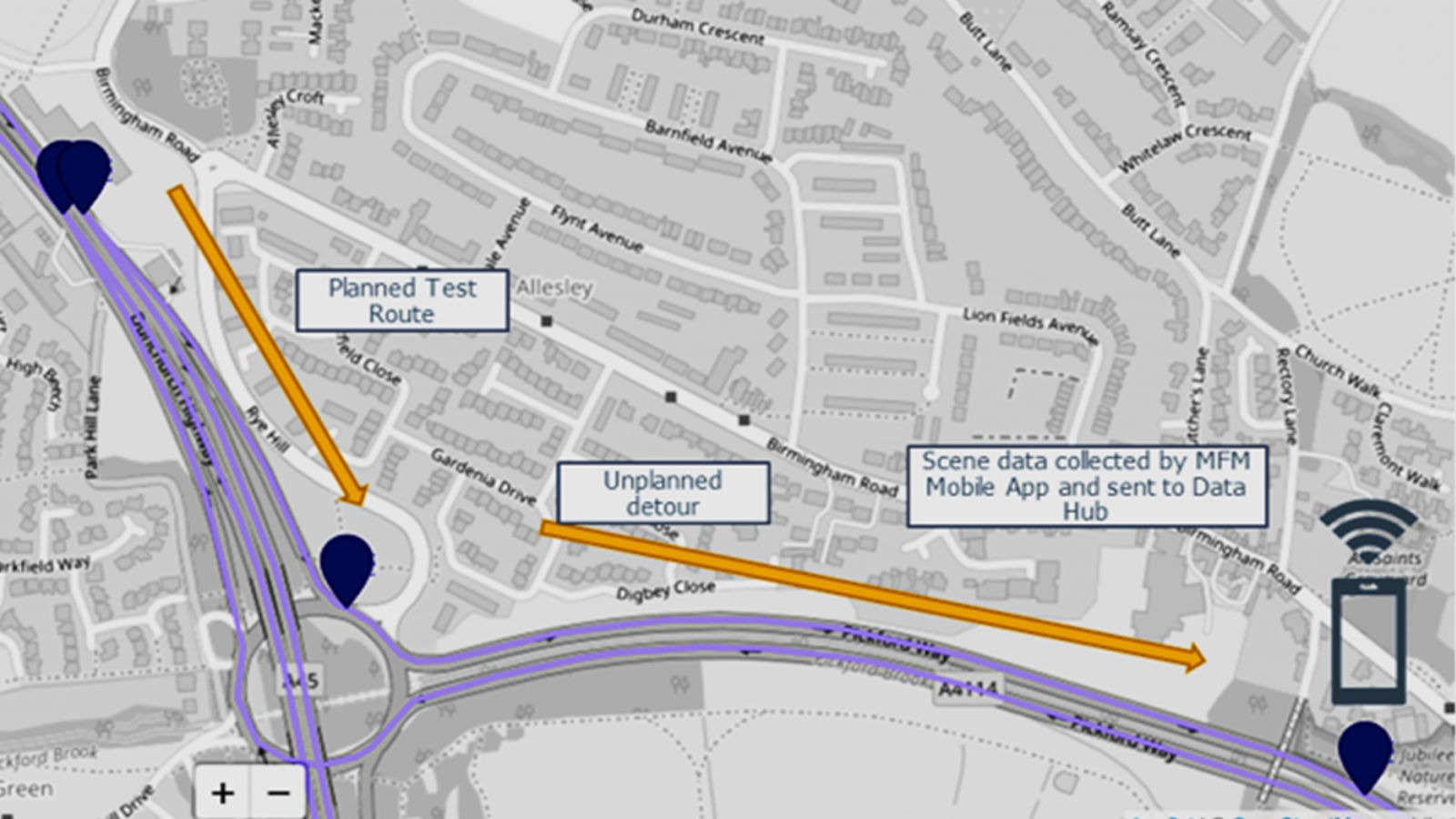
Trials Operational Safety
MFM can work with you to enable the early deployment of your technologies. Working with our governmental and road operator partners we can identify paths to deployments, for example working within the West Midlands regulatory sandbox or deploying technologies on the University of Warwick campus, a mini-city environment.
Our central objectives are the safe trialling of technology that engages stakeholders, users, and decision makers. This in turn creates the evidence needed to inform national standards and regulations within which these technologies can be scaled.
Deployment Feasability
Mobility is a safety critical industry. Whether your developing a complete mobility system, or developing a systems component – your technology will be part of a safety critical system. In developing a deployment plan all stakeholder must be involved, use cases identified, technology configured, and high levels of operational safety achieved. MFM can work with you to develop these aspects and understand the scope and cost of a potential trial.

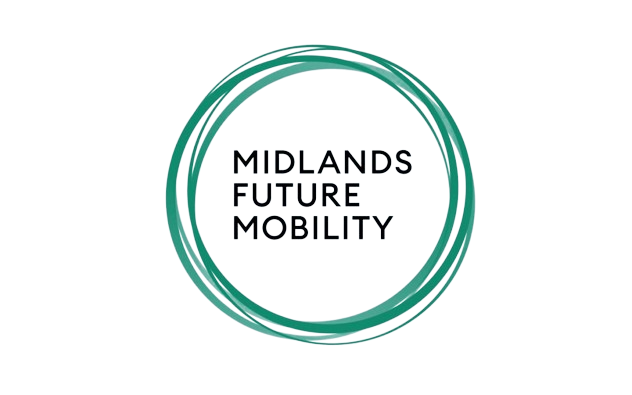

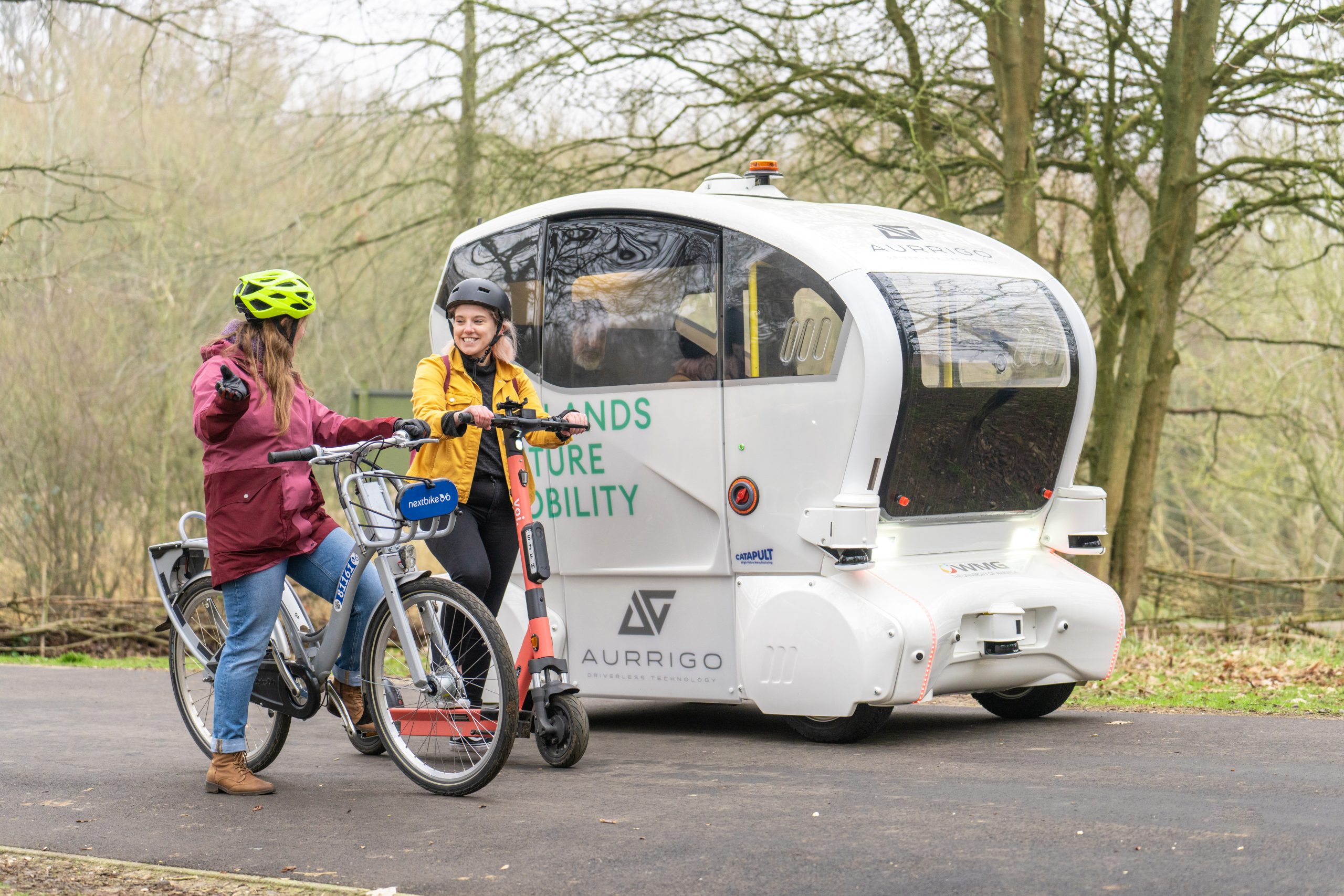
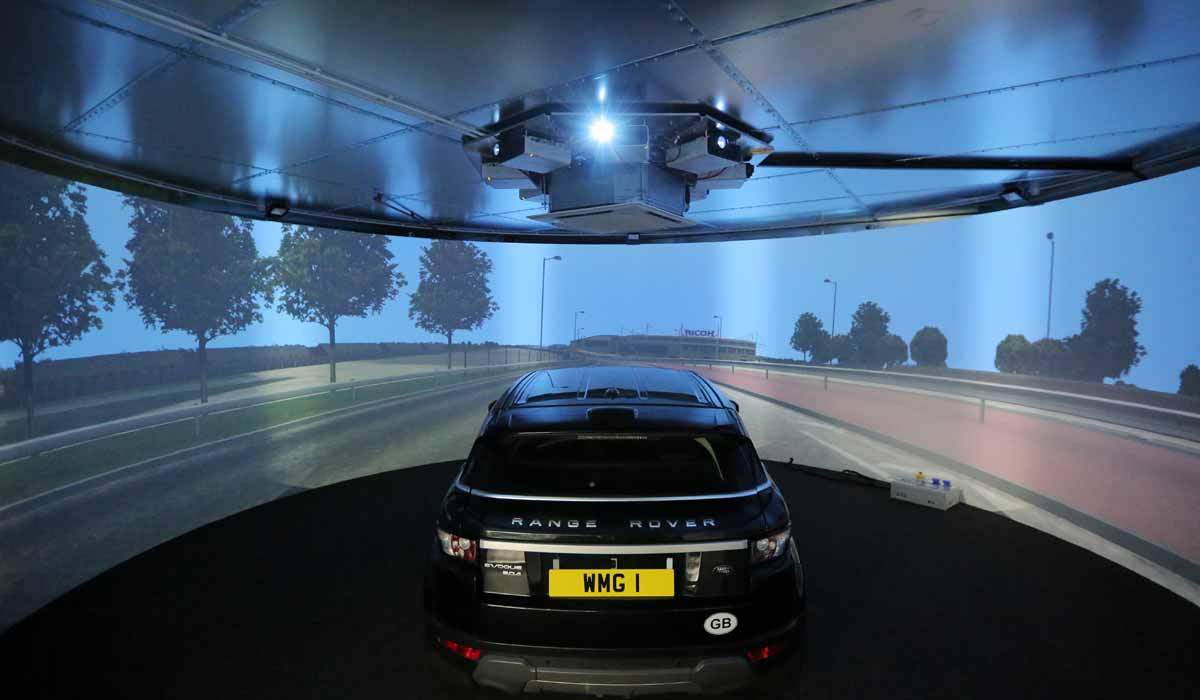
Simulation
simulation is a well-established method for testing out system capability. The degree of fidelity and the simulation environment will change based on the data required. With MFM we have a range of simulation platforms that enable a range of questions to be addressed from scenario execution for safety assurance, immersive simulations, and communications simulation.

System Safety
You are developing a CAM system. It is complex. It will form part of a wider even more complex system, but one which will have exceptional safety requirements. How can you build safety into your systems design? How can you demonstrate safety to users, investors, and partners?
MFM partners have developed world leading safety assurance methodologies, tools, and knowledge that can help you generate robust safety processes and data.
SafetyPool Scenario Database
SafetyPool™ Scenario Database is the worlds largest database of test scenarios of CAM and ADS systems. SafetyPool™ holds over 250,000 scenarios derived from data and knowledge such as insurance, real-world trials, and systematic-safety analysis. With codified languages and toolchains compatible with OpenX and SDL scenarios can be executed on for both Connectivity and Autonomy applications.


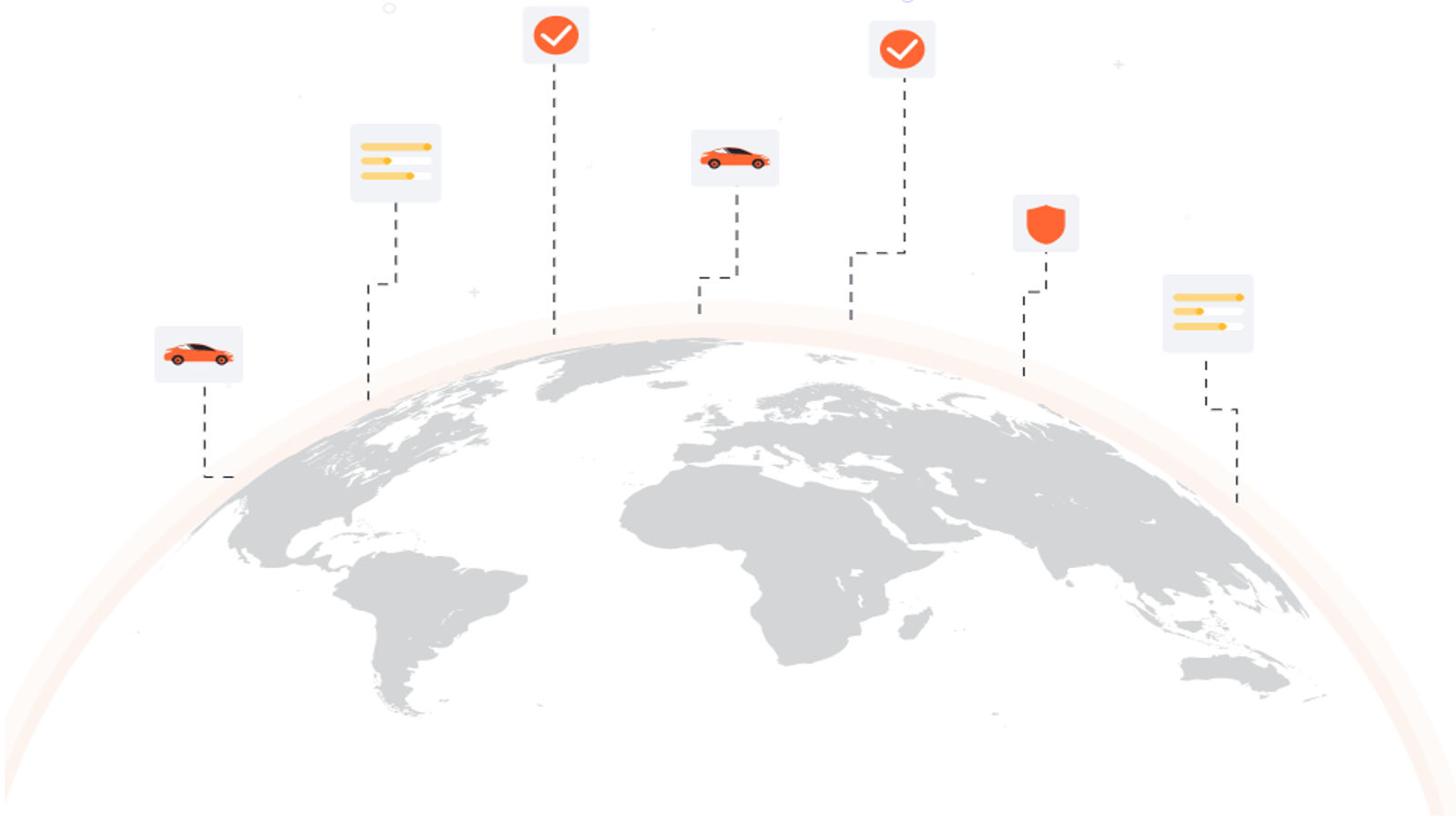

Systems Theoretical Process Analysis (STPA)
Users, partners, and investors are realising the critical importance of safety in CAM. These need to be comprehensively embedded from an early stage of your development. Yet complex systems with emergent behaviours require new approaches to safety analysis. MFM are a world leader in the application of STPA to CAM. STPA has been proven to identify all of, and more, safety critical hazards than traditional approaches. MFM can work with you to identify these known unknows and often unknown unknowns to inform the next age of system design.

Operational Design Domain (ODD)
In alignment with the BAS 1883 standard ODD is an established method of systematically defining the deployment area and capability of a system. Defining your systems within this context is critical for building partnerships with operators, infrastructure providers, and assurance bodies. MFM are world leaders in ODD and were lead technical author on the 1883 standard. We can work with you to understand the ODD capability of your systems and effectively define it.


Seamless Real World System Integration
Explore AVL UK’s comprehensive capabilities in ADAS/AD integration, connectivity solutions, and data collection services.
From seamless system integration to innovative connectivity solutions, AVL UK offers advanced services to support the development of autonomous driving technologies.
Discover our expertise in integrating hardware and software components, developing V2V and V2I connectivity features, and collecting real-world data for ADAS/AD applications.
Vehicle ADAS System Integration
AVL UK has huge experience in component installation & integration, methodology & tools development for calibration, testing and validation for various ADAS functions. AVL supported CAM scale-up start-up companies and various global customers in this field.
AVL UK has a workshop available for secure vehicle storage, prototype vehicle preparation and EV charging.
example of in-house automated parking project development which required integration of many hardware and software components in the vehicle can be seen in the picture.

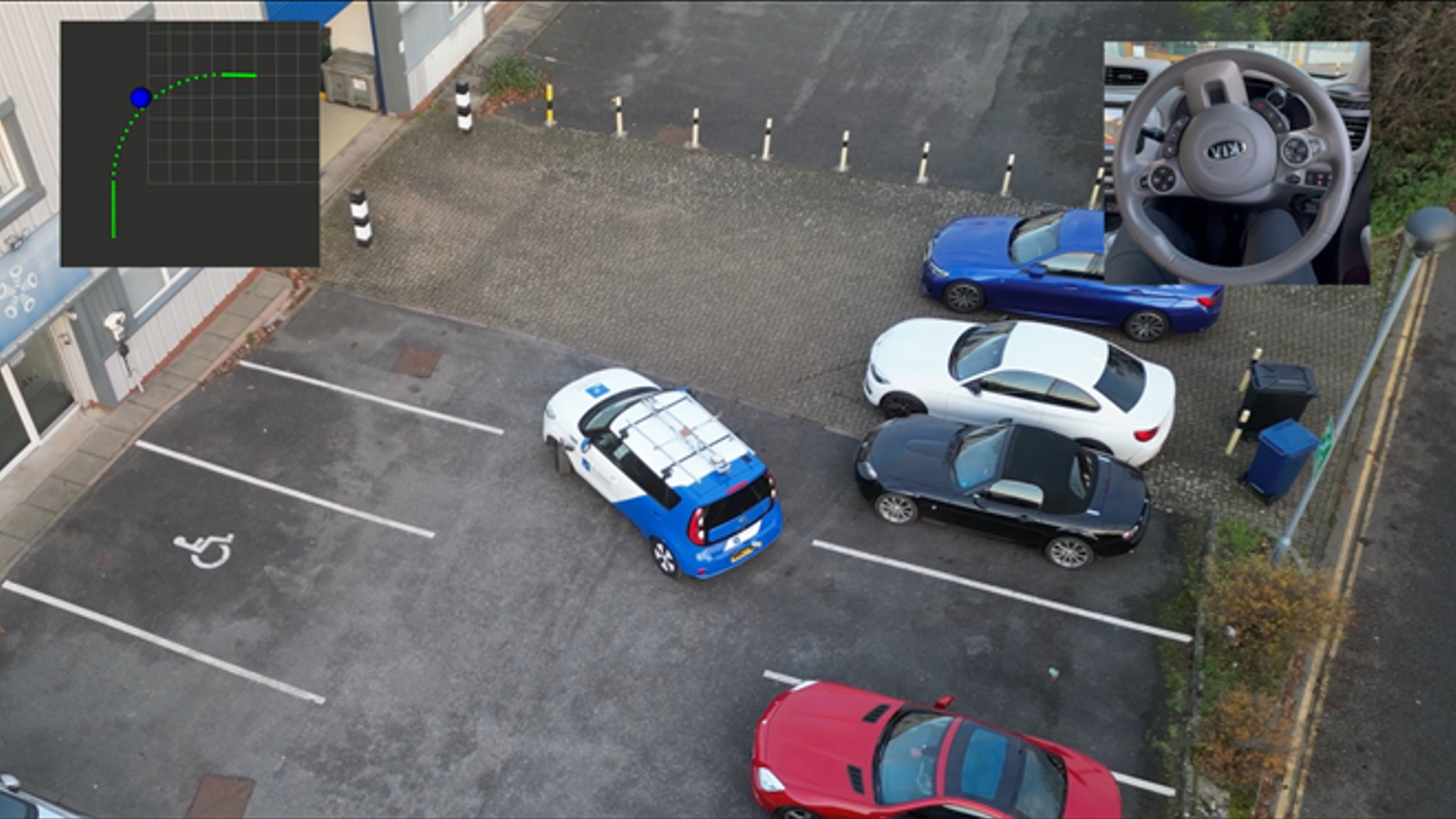
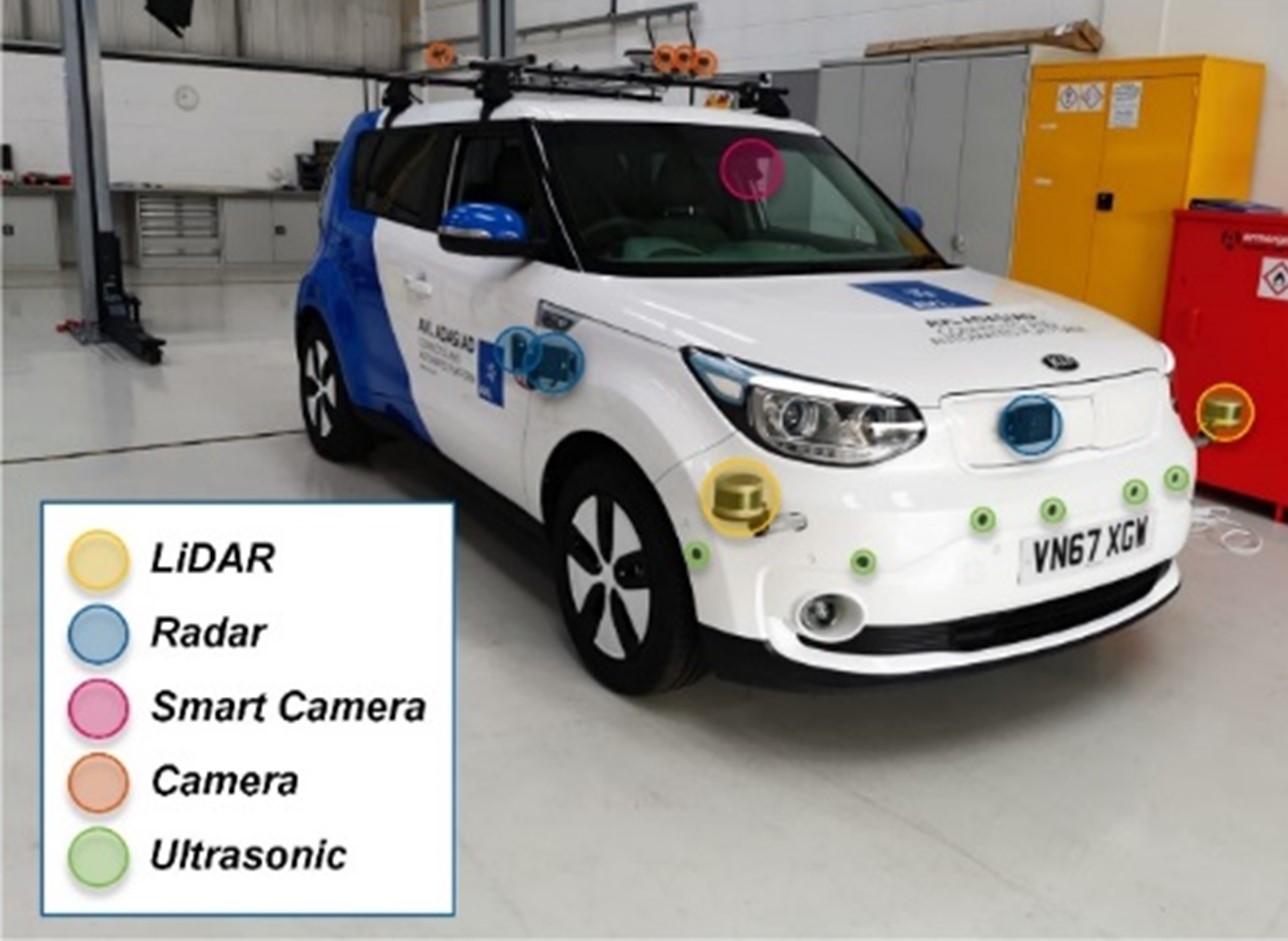
Vehicle Connectivity Integration
simulation is a well-established method for testing out system capability. The degree of fidelity and the simulation environment will change based on the data required. With MFM we have a range of simulation platforms that enable a range of questions to be addressed from scenario execution for safety assurance, immersive simulations, and communications simulation.

